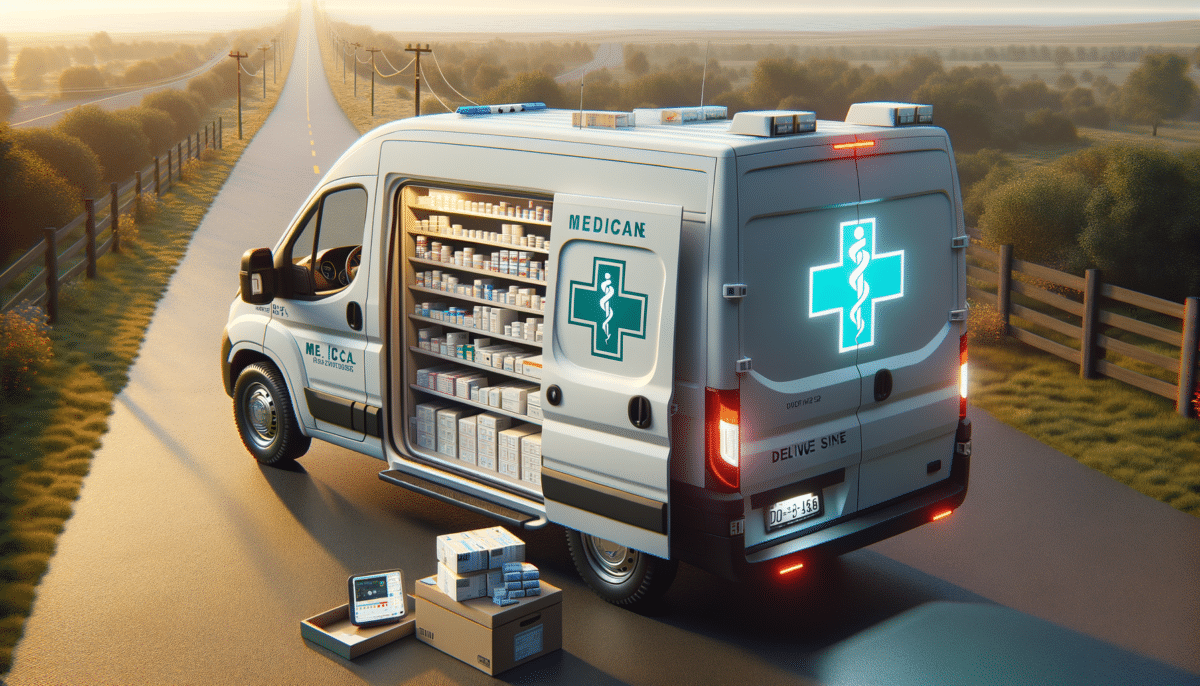Understanding the Role of Medicine Delivery Drivers
Medicine delivery drivers play a crucial role in the healthcare system by ensuring that patients receive their medications timely and safely. This role involves more than just transportation; it requires a deep understanding of the importance of medications in patient care. Drivers must be reliable and conscientious, as they are often the final link in the chain of healthcare delivery.
The primary responsibility of a medicine delivery driver is to transport pharmaceuticals from pharmacies or distribution centers to patients’ homes or healthcare facilities. This task demands attention to detail, as incorrect deliveries can lead to significant health risks. Drivers must verify the accuracy of orders, manage delivery schedules, and maintain the integrity of medications during transit.
Moreover, medicine delivery drivers often serve as a point of contact between patients and healthcare providers. They may provide basic instructions on medication usage and answer questions about delivery times. Thus, excellent communication skills and a professional demeanor are essential.
In summary, the role of a medicine delivery driver is multifaceted, requiring a balance of logistical skills, customer service, and a commitment to patient safety.
Essential Skills and Qualifications
To become a successful medicine delivery driver, several skills and qualifications are necessary. While formal education may not be a strict requirement, having a high school diploma or equivalent is generally preferred. Employers often look for candidates with a clean driving record and a valid driver’s license.
Key skills include:
- Attention to Detail: Ensuring the right medications are delivered to the correct addresses.
- Time Management: Efficiently planning routes to meet delivery schedules.
- Customer Service: Interacting professionally with patients and healthcare providers.
- Problem-Solving: Handling unforeseen challenges such as traffic delays or incorrect addresses.
Additionally, understanding basic health and safety regulations is vital. Some employers may require training in handling medical products, especially those that need special storage conditions.
Overall, the combination of these skills and qualifications helps ensure that medicine delivery drivers can perform their duties effectively and contribute positively to the healthcare system.
Challenges Faced by Medicine Delivery Drivers
Medicine delivery drivers encounter various challenges in their line of work. One of the most common challenges is managing time effectively. Traffic congestion, weather conditions, and the need to adhere to strict delivery windows can make timely deliveries difficult. Drivers must be adept at planning their routes and adjusting on the fly to ensure punctuality.
Another challenge is maintaining the integrity of medications. Certain medications require specific storage conditions, such as refrigeration, to remain effective. Drivers must ensure that these conditions are met throughout the delivery process, which may involve using specialized vehicles or equipment.
Moreover, the role can be physically demanding. Drivers often need to lift and carry packages, which can be challenging, especially with heavier or bulkier items. Additionally, the job requires significant time spent on the road, which can lead to fatigue.
Despite these challenges, many drivers find the role rewarding, as they play a vital part in ensuring patients receive the medications they need.
The Impact of Technology on Medicine Delivery
Technology has significantly transformed the field of medicine delivery, making it more efficient and reliable. GPS navigation systems and route optimization software help drivers plan the most efficient routes, reducing delivery times and fuel consumption.
Additionally, mobile applications allow for real-time tracking of deliveries. Patients can receive updates on the status of their medication deliveries, enhancing transparency and trust. These apps often include features for electronic signatures, reducing paperwork and streamlining the delivery process.
Furthermore, advancements in vehicle technology, such as electric and hybrid vehicles, are helping to reduce the environmental impact of delivery services. These vehicles offer a sustainable alternative to traditional gasoline-powered vehicles, aligning with broader efforts to reduce carbon footprints.
Overall, technology continues to enhance the efficiency and sustainability of medicine delivery, benefiting both drivers and patients.
Conclusion: The Growing Importance of Medicine Delivery Drivers
In conclusion, medicine delivery drivers are an essential component of the healthcare system. Their role in ensuring timely and accurate delivery of medications is critical to patient care. As the demand for home delivery services continues to grow, so too does the importance of this profession.
With the ongoing advancements in technology and logistics, medicine delivery drivers are better equipped than ever to meet the challenges of their role. Their contribution to healthcare is invaluable, providing a vital service that supports patient health and well-being.
For those considering a career as a medicine delivery driver, the opportunity to make a meaningful impact while enjoying the benefits of a dynamic and evolving field is both promising and fulfilling.
